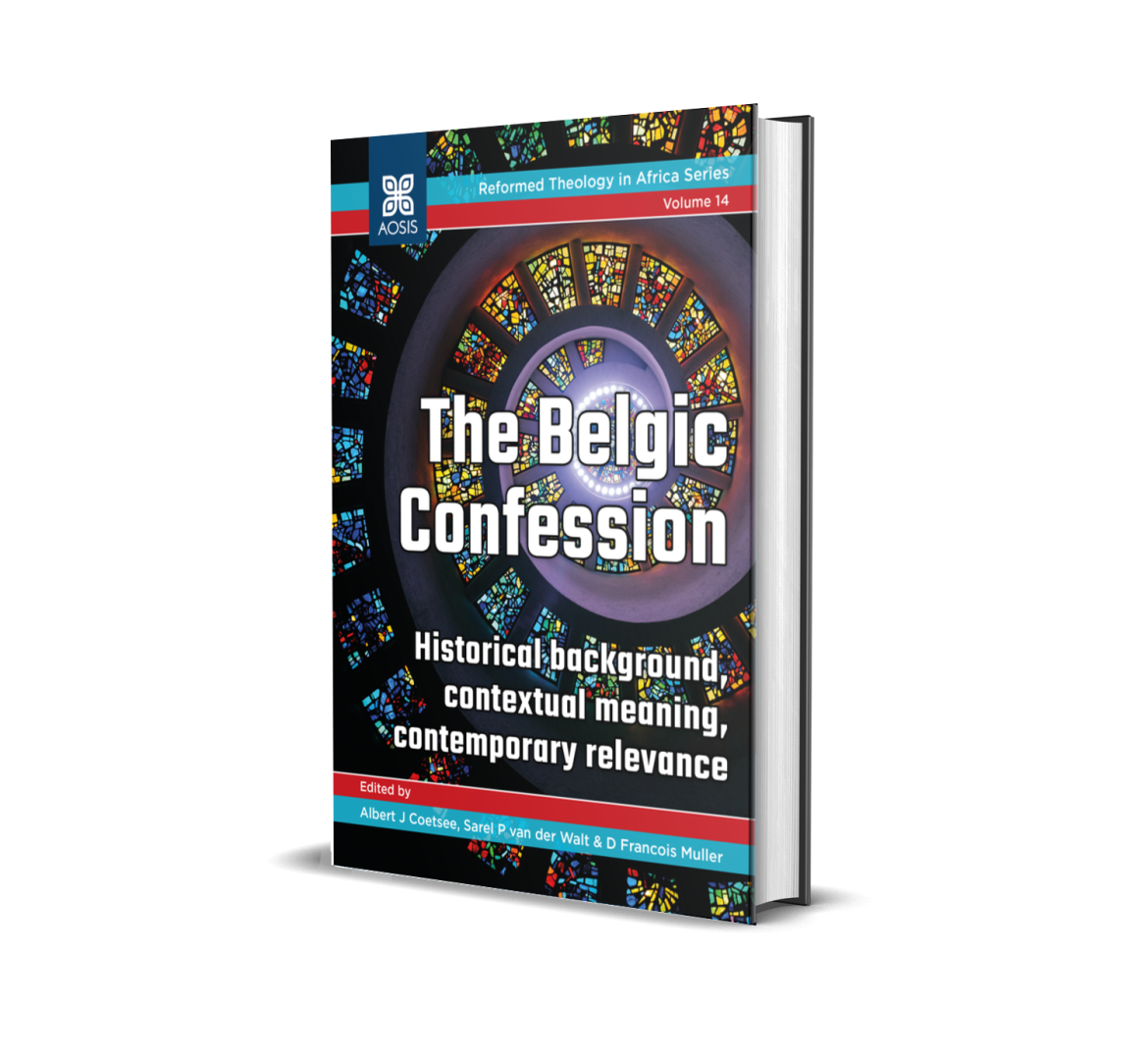The Belgic Confession: Historical background, contextual meaning, contemporary relevance is an open-access book published by AOSIS Scholarly Books.
This book, The Belgic Confession: Historical background, contextual meaning, contemporary relevance, investigates the contemporary relevance of the Belgic Confession. The book groups the 37 articles of the Belgic Confession together in order to cover the whole confession in 12 chapters (alongside an introductory chapter). The emphasis of the publication falls on two aspects: (1) providing a scope of contemporary theological, ethical and general issues and possible controversies regarding the content of the Belgic Confession; and (2) formulating ethical perspectives and guidelines from the Belgic Confession that may assist in the building of societies. Where applicable, chapters also discuss the history of the text of the Belgic Confession, the organic unity between the articles of the Belgic Confession, a dogma-historical perspective on the development of the doctrine/content of the Belgic Confession and the relationship between the Belgic Confession and other confessions.
Copyright (c) 2023 Albert J Coetsee, Sarel van der Walt, D Francois Muller (Volume editors)
This collected work on the meaning and significance of the Belgic Confession is a good example of a solid confessional hermeneutic. It highlights the contemporary relevance of a confessional document dating from 1563. Both the relevance of the 37 articles of the Belgic Confession and its theological and temporal limitations are assessed in a congenial and honest way. Repeatedly, the question is posed and, to a certain extent, also answered about how the formulations of the Belgic Confession need to be updated and its content supplemented or even altered. This scholarly work demonstrates the relatedness of the Belgic Confession to trends in contemporary systematic theology and current topical ethical challenges, such as human flourishing, developing biotechnology and transhumanism. Ample attention is given to the different religious and socio-political contexts pertaining to the Belgic Confession. Relevant questions that are dealt with include the challenge posed by ‘open theism’, the question of how and to what extent the findings of theology and science can be harmonised, what common ground Christians have with other monotheists, and the way in which the biblical view of God and creation relates to the nowadays prevailing material worldview. In the closing chapters, challenging issues are addressed, such as the question of how to translate Reformed ecclesiology into the language of missional ecclesiology, retrieving the relevance of Article 36 on worldly authorities and, last but not least, how new avenues in eschatology provide useful insights to actualise Article 37. This book exemplifies theology of retrieval as a whole. It stimulates the existential, respectful and thankful dialogue with this valuable confessional standard of many Reformed churches worldwide. After reading this book, one cannot reasonably persist with the idea that the Belgic Confession calls for an update, and is of no use for theological reflection of today.
Prof. Dr Jan Hoek, Department of Systematic Theology, Faculty of Theology, Evangelical
Theological Institute, Leuven, Belgium

